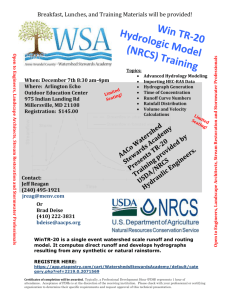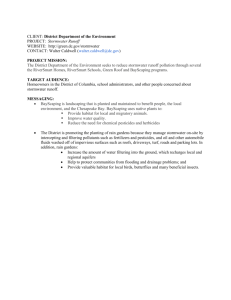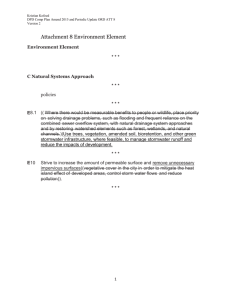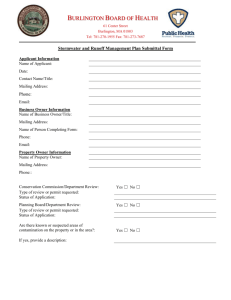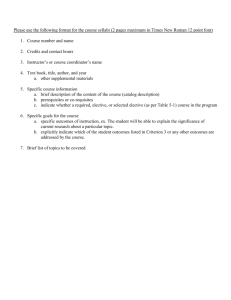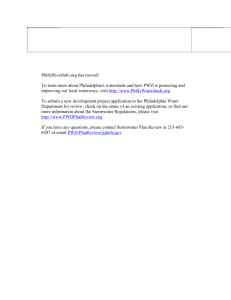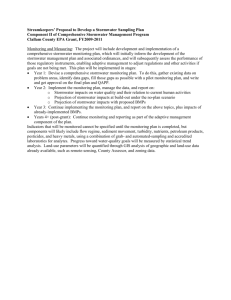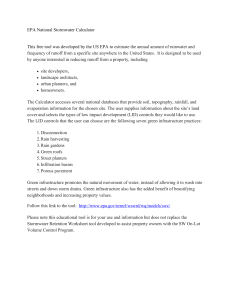TCHH 20-07 format - American Association of State Highway
advertisement
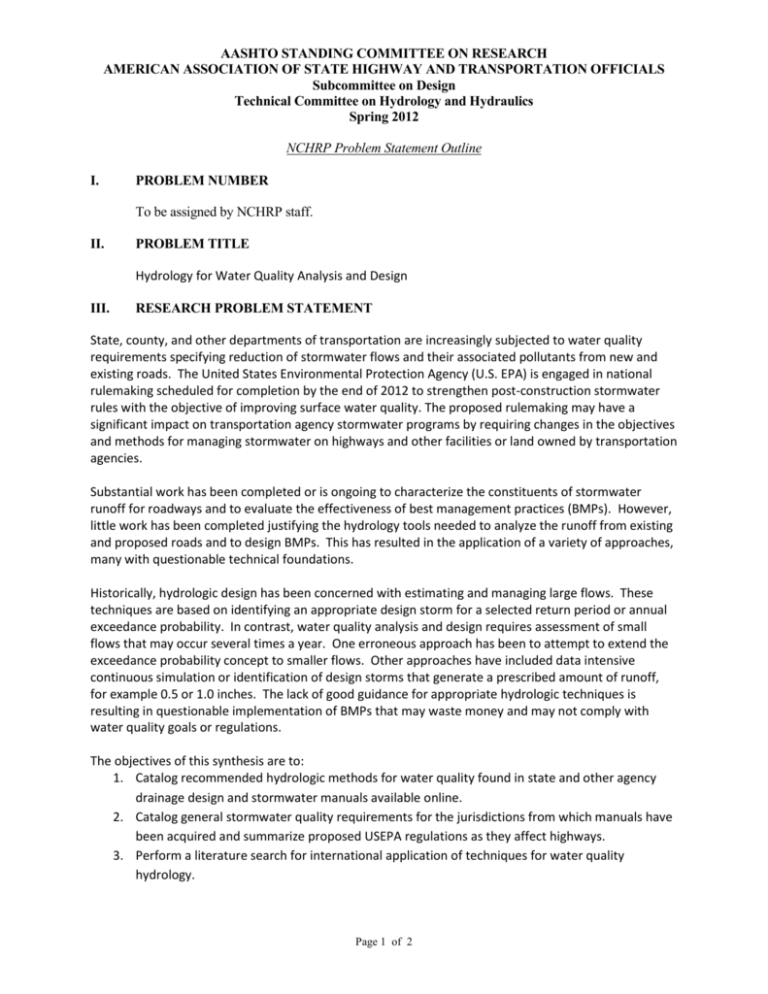
AASHTO STANDING COMMITTEE ON RESEARCH AMERICAN ASSOCIATION OF STATE HIGHWAY AND TRANSPORTATION OFFICIALS Subcommittee on Design Technical Committee on Hydrology and Hydraulics Spring 2012 NCHRP Problem Statement Outline I. PROBLEM NUMBER To be assigned by NCHRP staff. II. PROBLEM TITLE Hydrology for Water Quality Analysis and Design III. RESEARCH PROBLEM STATEMENT State, county, and other departments of transportation are increasingly subjected to water quality requirements specifying reduction of stormwater flows and their associated pollutants from new and existing roads. The United States Environmental Protection Agency (U.S. EPA) is engaged in national rulemaking scheduled for completion by the end of 2012 to strengthen post-construction stormwater rules with the objective of improving surface water quality. The proposed rulemaking may have a significant impact on transportation agency stormwater programs by requiring changes in the objectives and methods for managing stormwater on highways and other facilities or land owned by transportation agencies. Substantial work has been completed or is ongoing to characterize the constituents of stormwater runoff for roadways and to evaluate the effectiveness of best management practices (BMPs). However, little work has been completed justifying the hydrology tools needed to analyze the runoff from existing and proposed roads and to design BMPs. This has resulted in the application of a variety of approaches, many with questionable technical foundations. Historically, hydrologic design has been concerned with estimating and managing large flows. These techniques are based on identifying an appropriate design storm for a selected return period or annual exceedance probability. In contrast, water quality analysis and design requires assessment of small flows that may occur several times a year. One erroneous approach has been to attempt to extend the exceedance probability concept to smaller flows. Other approaches have included data intensive continuous simulation or identification of design storms that generate a prescribed amount of runoff, for example 0.5 or 1.0 inches. The lack of good guidance for appropriate hydrologic techniques is resulting in questionable implementation of BMPs that may waste money and may not comply with water quality goals or regulations. The objectives of this synthesis are to: 1. Catalog recommended hydrologic methods for water quality found in state and other agency drainage design and stormwater manuals available online. 2. Catalog general stormwater quality requirements for the jurisdictions from which manuals have been acquired and summarize proposed USEPA regulations as they affect highways. 3. Perform a literature search for international application of techniques for water quality hydrology. Page 1 of 2 4. Categorize and evaluate the identified techniques and methods based on the type of methodology (e.g. design storm versus continuous simulation), technical foundation, applicability, and other considerations. 5. Identify and interview representatives from 5 to 10 organizations that use broadly applicable, appropriate, and effective techniques to gain further insight into the source of these techniques and their experience with them. 6. Document the findings of this synthesis effort including recommendations for further research, if needed. IV. LITERATURE SEARCH SUMMARY Sources include recently completed or ongoing allied research efforts such as: NCHRP 25-31 “Guidelines for Evaluating and Selecting Modifications to Existing Roadway Drainage Infrastructure to Improve Water Quality in Ultra-urban Areas.” “Evaluation and Updates of FHWA Pollutant Loadings Model for Highway Stormwater Runoff.” (Joint project with USGS) NCHRP 20-68A (Scan 08-03). “Best Practices in Addressing NPDES and Other Water Quality Issues in Highway Systems Management.” NCHRP 25-41 “Guidance for Achieving Volume Reduction of Highway Runoff in Urban Areas,” Contractor selected in early 2012 with project completion 18 months later. Other sources include: State, county, and other agency stormwater and water quality design manuals. EPA Stormwater rulemaking website http://cfpub.epa.gov/npdes/stormwater/rulemaking.cfm Proceedings from the conference “International Perspectives on Water Resources and the Environment” to be held in Morocco in January 2012. V. ESTIMATE OF PROBLEM FUNDING AND RESEARCH PERIOD $75,000 VI. CONTACT Andrea Hendrickson State Hydraulic Engineer MnDOT Bridge Office 3485 Hadley Avenue North Oakdale, MN 55128 Office: 651-366-4466 Email: andrea.hendrickson@state.mn.us Page 2 of 2
